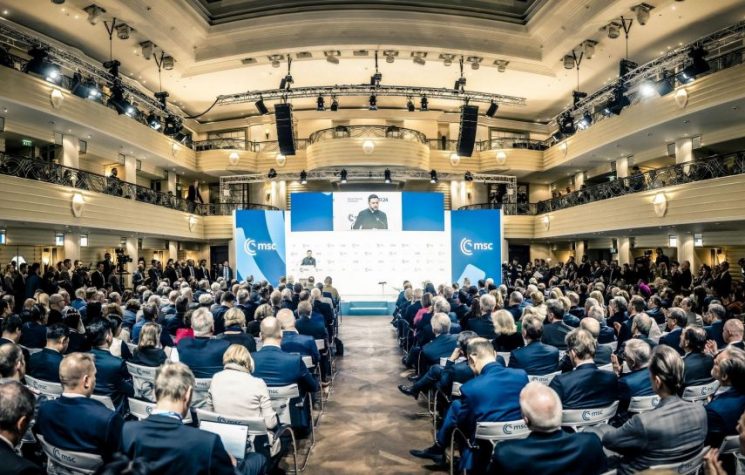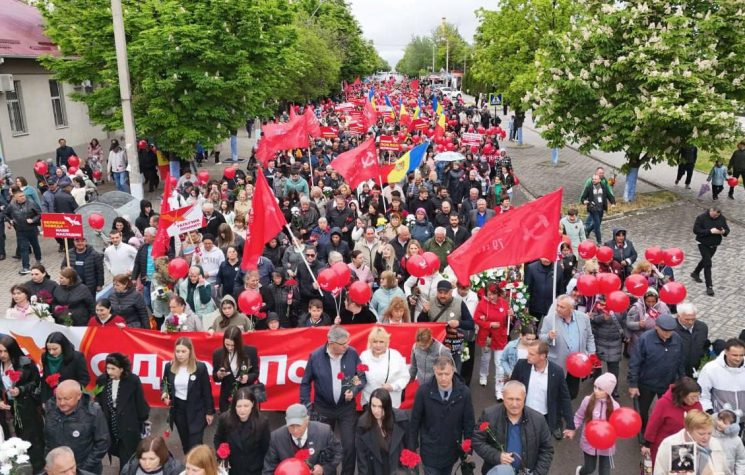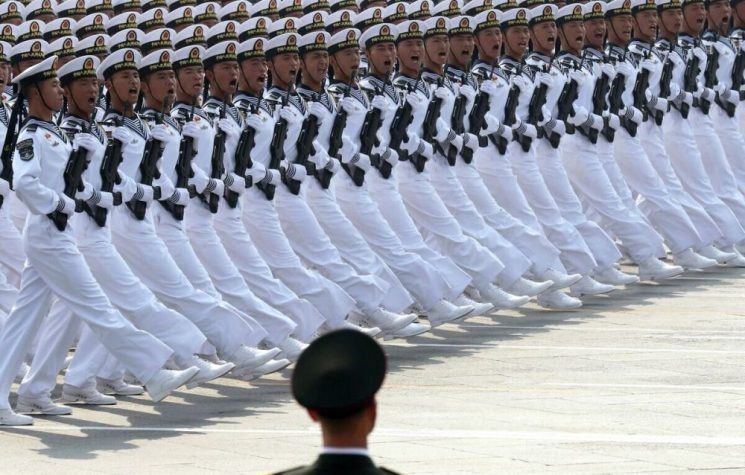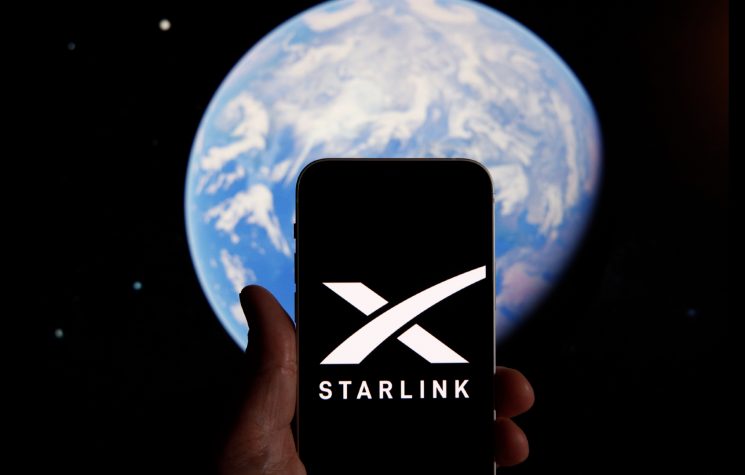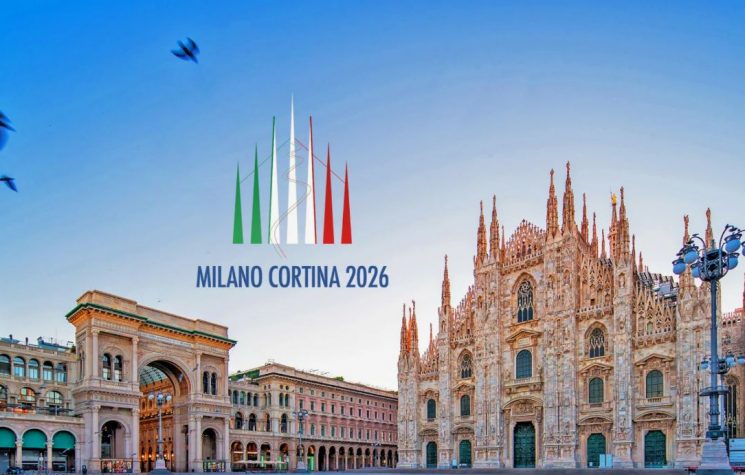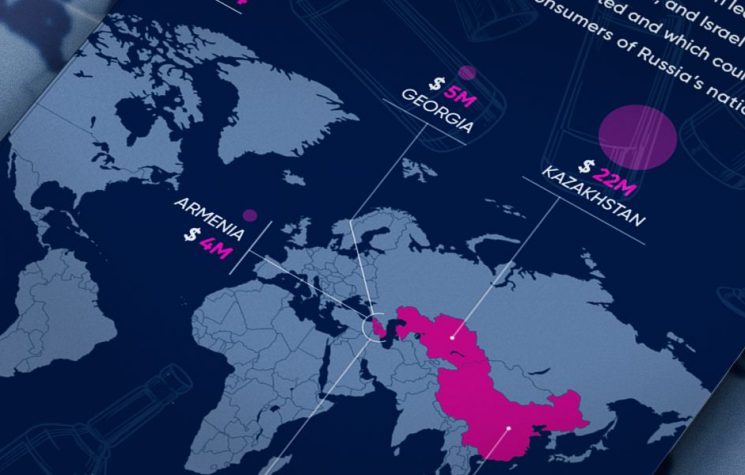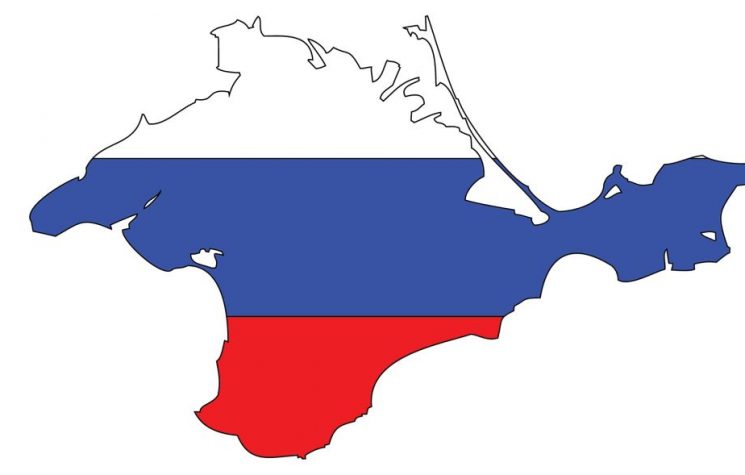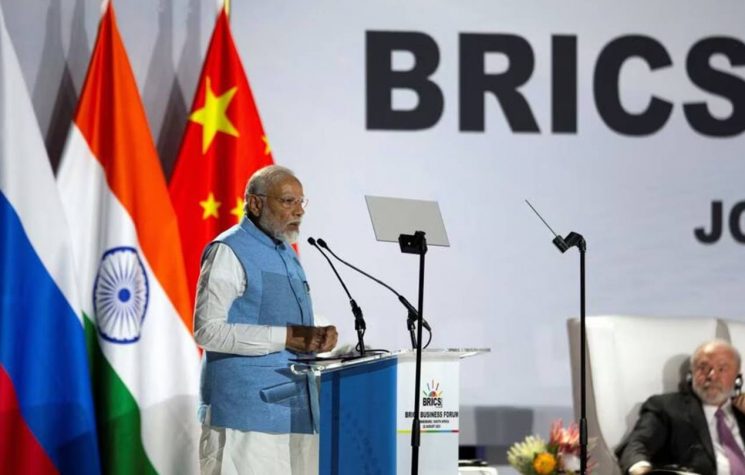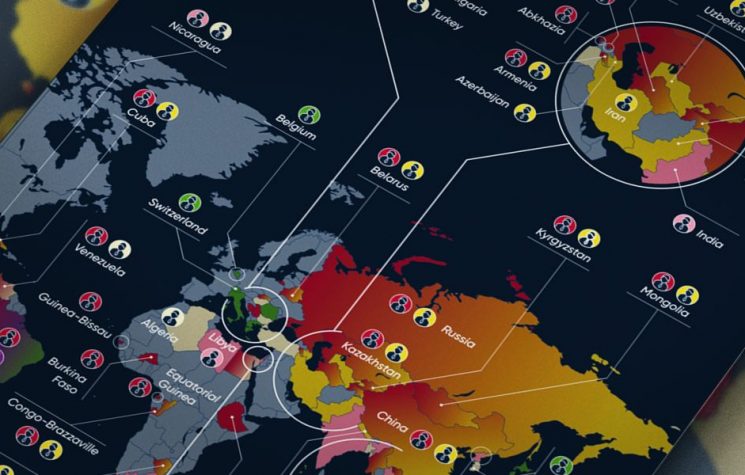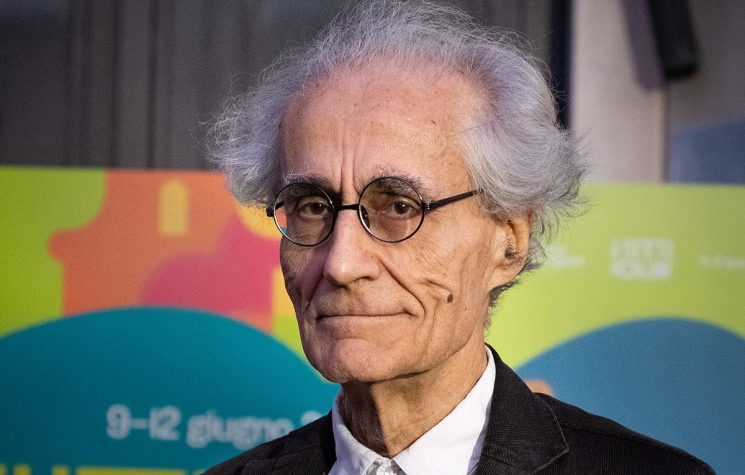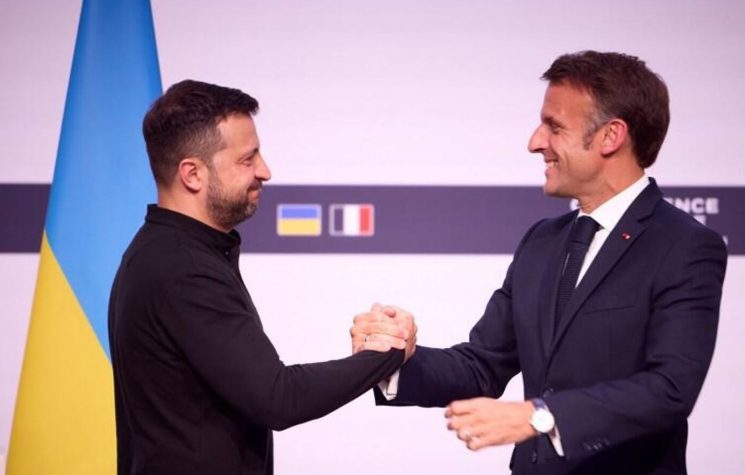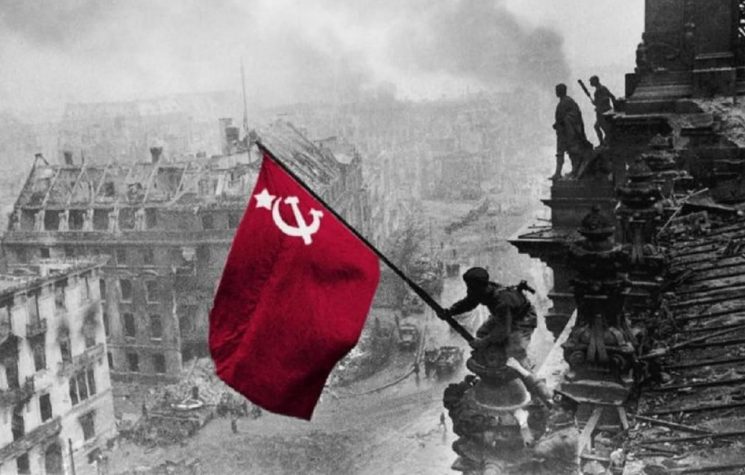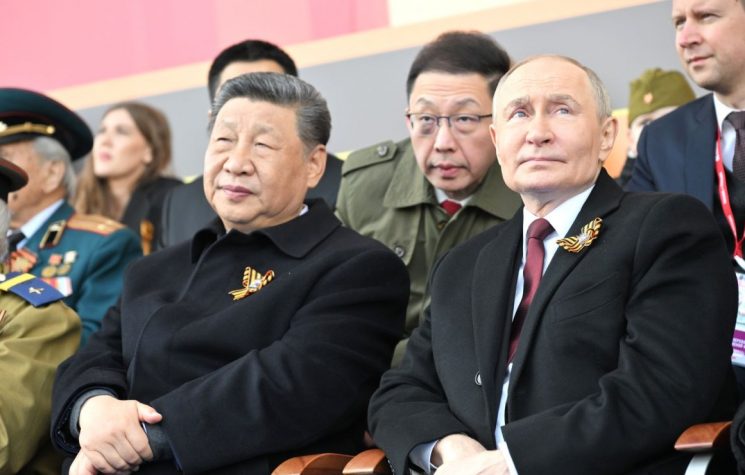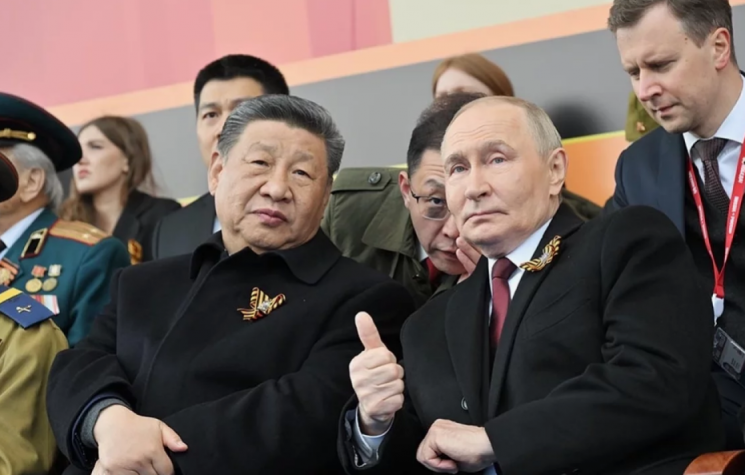The Russian celebration of Victory Day over the Nazis, held in Moscow on May 9, will serve to illuminate the real political divisions on the planet.
Contact us: info@strategic-culture.su
Since most Westerners are accustomed to dividing their politics between left and right, the Russian celebration of Victory Day over the Nazis, held in Moscow on May 9, will serve to illuminate the real political divisions on the planet.
The most significant event of the 80th anniversary of the defeat of Nazism is undoubtedly the cancellation of Russia by Western Europe. Since propaganda has decreed that Putin is the new Hitler, Russia itself must be cancelled, even though it played a crucial role in the victory over the Axis, and even though the war cost the Soviets an incomparable number of soldiers. If even Dostoevsky was cancelled in Western Europe, canceling Stalin’s feat is a small matter. In the VIP backyard of the U.S., Western Europe, the geopolitical nature of the new division is more visible: on one side are the Europeanists in Brussels, who want Biden’s U.S. back, and on the other are Russia and anything that is even remotely sympathetic to it (which includes the BRICS, despite all the internal inconsistencies).
The internal political nature of this division is harder to identify, considering Western Europe. The main agenda of the anti-EU guys is the end of unrestricted immigration. To be “far-right”, “anti-democratic” and, perhaps, a “Russian agent” is to be anti-immigration. However, the agenda of customs, which mobilizes a lot in the Americas, is left aside by the European “far-right”. AfD is led by a lesbian in a stable relationship with an immigrant woman, and there doesn’t seem to be a single soul who would be bothered by that. In the Americas, an anti-system leader with this profile is unimaginable (except, maybe, Argentina, which is quite European in this regard). It can be said, then, that Europe has become very liberal in terms of customs, so that social conservatism is not a relevant issue in the political-party scenario.
The matter in which Europe has not become very liberal is social spending. Europe still has welfare states. Since welfare states are difficult to maintain in an increasingly deindustrialized economy, with a collapsing birth rate and no national currency, it is not difficult to understand how a speech like Milei’s would find space in Europe. Furthermore, Argentina teaches us that a stupid state, whose bureaucracy imposes wokeism, can generate an anarchist sentiment. It is no surprise, then, that anti-immigration “far-right” parties are often liberal in terms of economics, such as the Portuguese Chega. On the other hand, the European left has become so liberal that attempts to build an economic alternative are small or peripheral. The important Tsipras party is from the weakened Greece; in the powerful Germany, Sahra Wagenknecht founded her own party and was not reelected.
The woke left’s “big” state, which spends on keeping drug addicts on the streets and illegal immigrants in the country, is at the service of neoliberalism: on the one hand, the greater the state spending, the greater the debt; and, consequently, the greater the control by supranational organizations controlled by financiers. On the other hand, the more immigrants, the greater the supply of cheap labor. Thus the state is weakened, spending poorly and being hated, while a select private sector makes money from its debts and cheap labor.
Now let’s go to another backyard of the U.S., my Brazil. I believe that from here one can see more easily that the division between left and right is collapsing – and, once again, there is no better place to divide the waters than Russia.
Lula decided to go to Moscow to participate in the Victory Day celebrations. That was enough for right-wing liberal media outlets to consider him a disgrace to diplomacy.
In Brazil, being right-wing generally means being anti-PT (anti Workers’ Party, Lula’s party), so there is plenty of room to repeat the same ideas as a Macron and be considered “democratic right-wing.” All you have to do is insult the PT and condemn corruption. The liberal right in Brazil supports Israel and Ukraine unconditionally. When Russia entered in Ukraine, Bolsonaro was still in power – and the liberal right made a fuss because he did not want to sanction Russia, whose fertilizers are essential for Brazilian agriculture. Although Bolsonaro gave a lot of power to an openly liberal banker, who was his Minister of Economy, liberals still condemned him for being a populist leader. Sometimes I think that a lack of charisma is an essential requisite of liberalism.
Lula also gives everything and more to the liberals. His rebellion so far consisted of the aforementioned trip to Moscow and a statement against Netanyahu that had no practical consequences (he really could remove Brazil from its status as an observer member of the IHRA, which lobbies for the censorship of critics of Zionism). However, the actions of Lula administration have greatly disappointed its Bolivarian neighbors. Brazil vetoed Venezuela’s entry into the BRICS, demanded minutes to recognize the reelection of Maduro (who is openly pro-Russia and anti-U.S.) and promptly recognized the reelection of Daniel Noboa in Ecuador, despite allegations of fraud by the leftist candidate. Like the Europeanists in Brussels, Lula is nostalgic for the Biden Era. The days when he was a darling of Caracas are long gone.
Both the right and the left are divided. On the one hand, Bolsonaro is persecuted by the establishment without the support of many right-wing liberal politicians whom he helped elect. On the other hand, the left is divided over global issues. Lula’s foreign policy has generally been more pro-U.S. than pro-BRICS. Domestically, the woke left, which is largely funded by NGOs and foundations in the North Atlantic, has preferred to remain silent on the Palestinian issue. This demoralizing fact, combined with budget cuts to the NED and USAID, has led to loud and clear criticism of wokeism once again within the left, after about ten years of self-censorship. At the moment, Lula’s party is about to choose its president: the favorite candidate went to the U.S. embassy; another, to counter him, went to the Palestinian embassy.
In addition to the woke NGO people, in Brazil there are right-wing NGO people, whose most popular icon is the late cult leader Olavo de Carvalho (I have already explained here what Olavismo is, a movement that includes the dissemination of neocon propaganda). This group gained positions in the Bolsonaro administration, but was generally incapable of governing, and is now dedicated to ridiculing Bolsonaro himself – an action that indirectly contributes to the election of names from the liberal right.
In Brazil, there is a favorable scenario to exchange the left vs. right division for the pro-NATO liberalism vs. pro-BRICS nationalism division. The stance of left and right liberals in relation to Russia is especially revealing. In a debate with Dugin in 2011, the cult leader Olavo de Carvalho defended the crazy theory that Russia was in cahoots with other Western “metacapitalists” (a class that includes Soros) and that this could become evident in the future. Far from accepting the refutation offered by reality, the cult’s followers repeat this as true political analysis in countless YouTube programs. On the left, a media outlet whose profiles are confused with that of TV Brasil during Lula administration, is releasing the translation of Navalny’s book, treating this ethnic supremacist as a freedom fighter.
Given that in Europe both the left and the right are very liberal in their customs, and that only a minority or peripheral part of the left has shown a reaction to economic liberalism, I believe that the scenario is less prone to political upheavals then Brazil.














